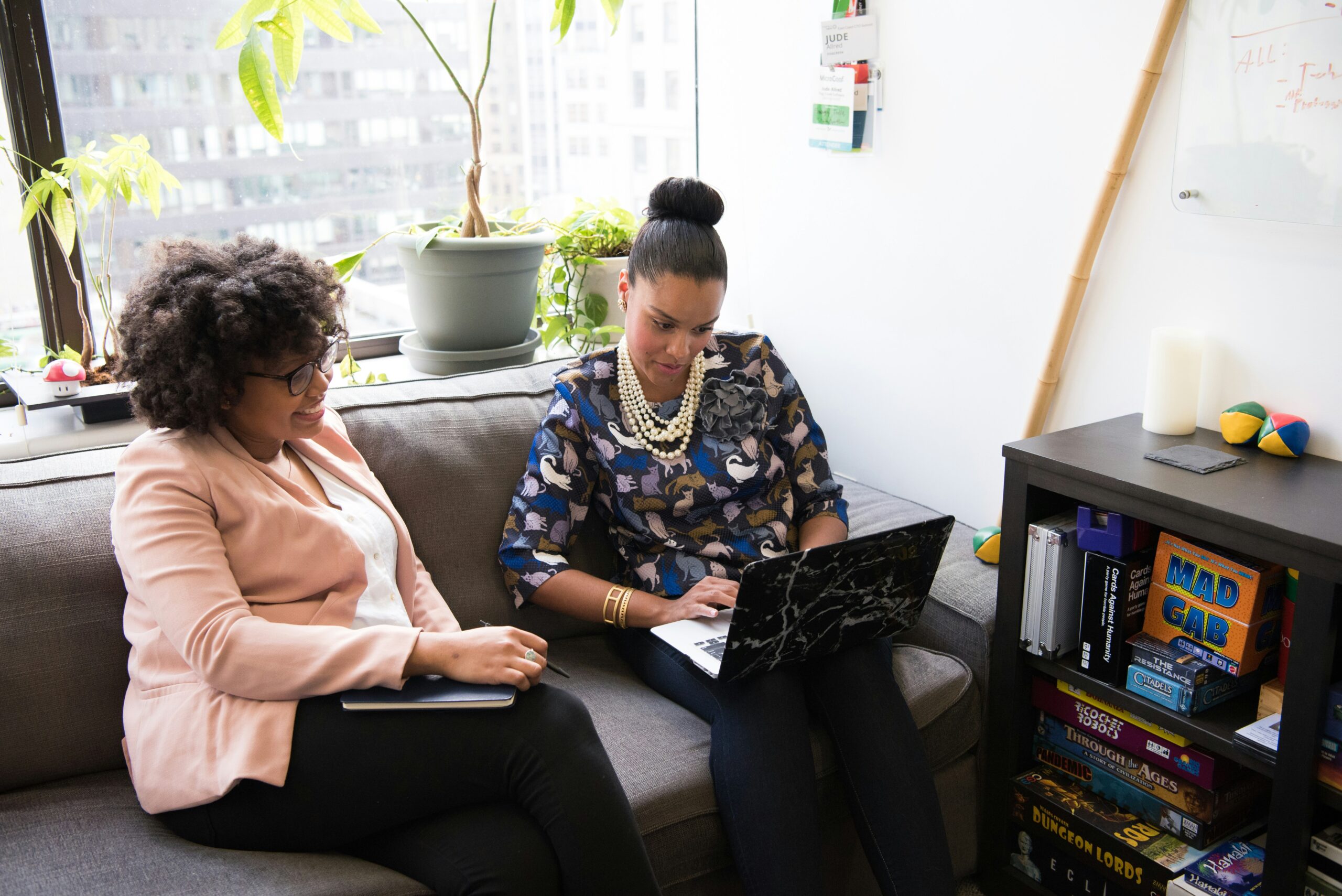Here’s what you need to know if you’re considering becoming a landlord.
Entering the rental market can be very profitable and satisfying. With the right property and good tenants, you can make reliable revenue. However, those new to land lording or considering buying a rental property sometimes find that the steady income is not at all only a passive income.
Maintaining a rental home might require a lot of work. Prospective landlords may find the following questions and answers helpful in determining whether this is the ideal time to enter the rental market.
Advantages and Disadvantages of Becoming a Landlord
From the outside looking in, land lording appears to be a simple profession. While there are numerous benefits to owning a rental property, there are also drawbacks. Landlords may encounter a variety of challenges and issues, such as:
-
- A challenge in attracting new tenants;
-
- Difficulty managing current tenants;
-
- Resolving conflicts that arise with tenants or between tenants and neighbors;
-
- Maintaining and repairing the property;
-
- Evicting tenants who are unable to pay the rent;
-
-
Complying with state and local legal requirements;
-
Although there is always a chance that a renter won’t be able to pay their rent, careful tenant screening procedures can significantly reduce that risk.
While there are many challenges for landlords, there are numerous benefits as well. Some, for instance, include:
-
- Receiving rent each month that brings in a passive steady income;
-
- Partnering with a manager to set up property management.
-
-
Possessing a reliable and safe investment.
-
Many landlords can reduce their time maintaining their properties with accurate strategy or assistance, giving them more time to care for their families or pursue other business endeavors.
Among the practical benefits of owning and renting out short-term furnished apartments are:
-
- Higher rentals,
-
- Relatively trouble-free annual tenancies,
-
-
Minimize the need to continuously advertise, market, and manage your properties between tenants.
-
This is especially advantageous when compared to seasonal holiday lettings.
Tip: Since regulations are subject to frequent changes that impact revenues, landlords should always obtain professional counsel when choosing a tax regime or whether to operate as a full-time professional landlord or non-professional landlord.
How do you start?
Since commercial real estate frequently entails substantially larger upfront fees, most landlords begin their endeavors in residential rentals. However, what works best for you depends on your objectives, financial situation, and available resources.
You might wish to thoroughly investigate the market you intend to enter before purchasing your first rental property. Location is crucial in the real estate market, even though your initial investment or rental property may be closer to your house. A thriving rental market in a nearby city may result in higher rents and greater returns.
You may want to examine whether the available rents in your area/target market are occupied or vacant for residential or business buildings. It’s crucial to consider how much other landlords are asking for rent on comparable units and whether your business will be profitable enough to cover the mortgage, taxes, tenant management, repairs, maintenance, and unexpected costs.
Buying a Property that already has Tenants
Landlords can buy and sell tenant-in-situ properties. Some rental properties may be labeled as turn-key investments. This usually indicates that a stable, long-term tenant already resides in the property.
Since previous landlords/owners have already done much of the work, these opportunities can be an excellent place for new landlords to start. But like any investment, buying a home that a tenant inhabits may have disadvantages, especially if the current lease agreement:
-
- Is just renewed and prohibits or doesn’t have a clause for rent increases;
-
- Obligates the landlord to cover expensive upkeep or repair expenses;
-
-
Limits the landlord’s rights.
-
If you are considering buying a tenant-in-situ property, you might want to have a lawyer review the current lease agreements before making a purchasing decision.
Tenant Selection
While it could be thrilling to find your first tenant, it’s crucial to ensure that they, as well as every other tenant you rent to, fulfill the minimal requirements you’ve set. Landlords usually ask prospective tenants to submit a rental dossier.
Landlords frequently need proof of income, such as pay slips and tax returns. Verifying information by background check can be a crucial step in the process. Speaking of which, don’t forget to keep local and state rules in mind when screening tenants.
This generally means you cannot discriminate against or favor a potential tenant based on age, family situation, gender, race, religion, national origin, sexual orientation, or handicap in your screening criteria.
Some landlords prefer a month-to-month rental agreement instead of an annual or multi-year lease to lower their chances of being trapped with a terrible tenant for an extended period. But in France, month-to-month lease agreements are not a feasible option.
Strategies for Renting Your French Property
If you own a property in France and are considering renting it out for short-time or extended periods, it would be wise to make several crucial considerations in advance.
Why are you renting?
This affects how you approach listing your property for rent.
Do you have a marketing strategy?
How can you differentiate your property from the competition in the increasingly competitive French rental market?
Do you need a property management?
You have to ensure that your home is well-maintained and taken care of and that tenants are treated professionally. For example, property managers can provide valuable assistance for the right property and landlord.
What about Taxes?
Whether you like it or not, you must declare rental income on your tax return if you own the property. However, there are legal methods to pay as minimal tax as possible.
Are you familiar with legal matters?
How do you reduce tenancy conflicts and fulfill your landlord obligations?
What kind of income would constitute a “good return” on your property regarding rentals?
Top Reasons to Rent out Your French Property
In general, property owners choose to rent out their property in France for one of four primary reasons:
Money
If you own a respectable home in France and manage the rentals well, you can make between €25,000 and €40,000 a year. Given that the typical French wage is approximately €33,000 per year, the returns appear to be quite favorable for a small amount of work.
However, you must approach it from a business perspective to maximize profits and establish a consistent income. If you are renting out property in France, mainly if you are based abroad, consider having highly qualified property management.
Several approaches are available if you’re considering evaluating your property’s value in France.
Also, you should consult a competent accountant to declare the income on your French tax return. Ideally, you can benefit from this tax regime as a “personne physique” with the status “louer en meuble non professionnel”. Similarly, you should get competent assistance when using rental contracts to avoid unwelcome legal complications.
Maintenance
Some owners seek to make money by renting their French properties to finance maintenance or renovations. This makes sense, as the rental income raises the funds needed to upgrade and renovate the property.
It may surprise you to learn that if you furnish your home tastefully and with care, tenants will take care of it and desire to stay. Moreover, you will significantly cut down on the number of phone calls and complaints, all of which require funds to resolve.
Utilization
Owners of vacation homes in France are also motivated to rent out their properties since they are discovering that they are utilizing it less and less and that the house sits empty throughout the year.
Similarly, if you have tenants staying, they can alert you to minor concerns before they get out of hand. All of these will discourage crime while also preserving the property’s value and upkeep.
Selling
Finally, selling a property in France can be a complex process. Especially in rural areas, occupied properties have a higher chance of being sold than vacant houses. Arriving at a damp and chilly property is not exactly a warm greeting for new tenants. Surprisingly, it actually helps you sell the dwelling when you have someone in it during the selling process.
Marketing your Rental in France
The methods used to advertise rental properties are relatively standard: estate agencies, websites like seloger.com, wunderflats.com, etc., modest ads in local newspapers, noticeboards, etc.
You need to be strategic in marketing your property’s unique qualities because more and more new rentals are hitting the market. Your listing must include one striking photo that captures all of your property’s key selling points: the views, the gorgeous facade, the top patio, and so on.
Each property has a unique quality, such as amazing views, being close to schools and markets, being in a charming town or hamlet, being distant and peaceful, or being in a popular vacation/touristic area. It is imperative that you clearly communicate any unique features of your property to potential buyers. Make your home distinctive.
Furthermore, you must match your primary selling points to the essential needs of your target audience. Long-term tenants frequently search for homes that have:
-
- Good Wi-Fi to allow remote working;
-
- Adequate heating;
-
- Proximity to amenities like supermarkets, transportation, and schools;
-
-
Outside area.
-
Your advertisement must address every one of these so-called search criteria.
Note: Keep in mind that companies in France with more than ten employees must contribute to an organisme agréé de construction (approved construction organization). This means that they have access to rental properties with reduced rental rates.
Tips and tricks for marketing your property
-
-
High-quality photographs
-
Properties are sold through photos, particularly those featuring the outdoors. Prospective buyers or tenants want to visualize where they will stay and want to see it. Your property’s clean, light, and airy appearance should be highlighted in the photos. Make sure the photos you use capture the special selling feature of your long-term rental home.
But high-quality photos alone may not always suffice in this fiercely competitive era of French rentals. For example, you could employ high-definition 360° virtual tour films to effectively market the rental property’s benefits.
-
-
Concise description
-
Give a prospective tenant an accurate description of your rental home. In the first two or three lines, highlight the features that make your dwelling unique. You don’t need to list every piece of furniture. Yet
use powerful adjectives such as cozy, roomy, calming, etc. Give them a verbal tour of what to expect from their stay at your rental. Also, remember to provide some recommendations for nearby activities.
-
-
Key information
-
You have roughly a minute to capture a prospective tenant’s attention for your rental property. They are generally interested in four crucial details. Make it easy for them to find it:
1) Price
2) Spacious or not
3) Availability
4) Location
Tax on Rental Income in France
Given the beneficial tax breaks and the lack of mandatory self-employment social security contributions for small landlords, property rentals remain among France’s most financially appealing income sources.
Firstly, you must be familiar with French taxes, whether for short-term stays or long-term leases.
Suppose you think, “I’ll rent it out, but I won’t disclose the income.”
But what are the potential consequences?
The French tax authorities are now closely monitoring France’s major online travel agencies (OTAs), including Airbnb, VRBO, and Booking.com. The OTAs are also obliged to file tax records for the postings. Thus, the likelihood of being discovered for unreported rentals has increased recently.
Of course, you can set up a private rental agreement with a tenant. It is then up to you to notify the tax authorities of this income.
However, what if an issue arises? What if the tenant stops paying the rent, incurs an unreasonably high electricity bill, or damages the property?
To whom will you turn next? It’s nearly impossible to find a French lawyer willing to take that case if this is an undeclared rental in France without a legal rental contract. Similarly, you won’t be able to bring a legal case to any country outside France.
Last but not least, the renter always has the power to report you for tax avoidance to the French tax authorities.
Establishing a small business in France and paying taxes and social charges on rental income has two additional hidden benefits. First, if you disclose an annual income of at least €5,500 under the micro-enterprise system, you will immediately qualify for French health coverage (carte vitale), a huge benefit. Second, you will begin to accrue French pension benefits.
Legal Concerns
You may have heard all the horrible tales of people renting out their homes in France and experiencing dreadful issues with the tenants. It is undeniable that, in France, the law largely favors the tenant, depending on the nature of the rental agreement.
Under French law, there are various rental agreements and the distinction between primary and secondary dwellings, which matters enormously to the tenant’s rights and the landlord’s obligations.
Legally, the rental agreement must be for a minimum of 12 months if the furnished rental property is rented as the tenant’s primary residence. After the first 12 months, the contract is renewed annually under the same conditions (apart from a rental increase).
The minimum lease period is three years for unfurnished rentals if a tenant rents from an individual and six years if you rent from a company. (Although private landlords may break the lease after one year for specific reasons.)
As a landlord, you must notify the tenant in writing that the lease will not be extended if you do not want them to continue living in the apartment after the first 12-month term. Usually, you’ll have to do this three months or more before the lease expires. If you miss this window, the contract will continue next year.
According to French law (Loi ALUR), landlords offering furnished rentals must provide mandatory housing reports covering electrical adjustments, flooding risk, lead pipes, energy efficiency, etc.
Primary or secondary residence
However, the tenancy can be for any length of time, and the contract does not automatically renew at the end of the lease if the property is not the tenant’s primary residence (that is if it is explicitly specified that it is rented as a residence secondaire).
Furthermore, most of the burdensome requirements of French law, including, crucially, a treve hivernale, do not apply, even if the landlord is still required to ensure a certain degree of safe living conditions.
A principal residence is as follows:
-
- You have been or will reside in the property for at least eight months;
-
- The dwelling must be situated geographically near your long-term place of employment or business, your kids’ schools, your social life, or any other important component of your life;
-
- You do not plan on leaving anytime soon (i.e., it is your permanent home);
-
-
The official location where you have registered for taxes with the French authorities should also be the dwelling.
-
A principal residence is a tenant’s permanent home, where they intend to live for the foreseeable future, to put it simply. The tenant’s current place of residence may not be their primary residence, even if they have no other property or another permanent address. Therefore, it’s feasible that a tenant will live in the rental home as their main residence but not their principal residence.
This distinction between a principal and secondary residence is essential if you have ever dealt with a French tenancy. It could indicate the difference between a 12-month eviction process (even a few years) and an eviction that takes weeks.
Valuing your Rental Property
Focusing solely on the weekly or monthly rental price can cause landlords to overlook its relatively minor impact in the larger context.
Let’s assume that your home’s high-season rental value is €1700 per week. You might conclude that this is offensive. The neighbor on the same street charges €2600 a week. You’ll increase the rent and charge €2200, gaining €500.
But the question of whether or not it will rent is crucial. Every week that your property is unoccupied, you lose seventeen hundred euros.
The important thing is not the weekly rental price, as seen from the data below, but rather pricing your home appropriately to guarantee occupancy.
€1700 x 8 weeks rental = €13,600
€2200 x 4 weeks rental = €8,800
You must also consider that France’s rental market has become very competitive. Compare your property with apartments or houses that yield better returns and properties in the lower range.
Also, most private property owners obtain rent protection insurance to protect them if a tenant doesn’t pay the rent or if they must evict them.
Business Registration as a Landlord
Top Tips
1. In most cases, small landlords who rent out unfurnished properties do not have to register as businesses. However, if you let furnished accommodation, the rental income is ‘commercial,’ and you can register it as a business. Landlords of furnished short-term vacation rentals must, however, register administratively.
Also, remember to find out the benefits of becoming a professional or non-professional landlord.
2. As part of renting out a property, there are additional legal requirements for surveys and reports.
3. Let’s say your expenses surpass the benefits your micro tax status grants. In that scenario, even though taxing under the regular micro tax status might be more straightforward, it is more financially rewarding to be taxed under the régime réel, independent of your legal or business position.
4. You can utilize a mortgage to purchase and rent a home while deducting interest costs, provided you choose to be taxed based on the régime réel.
5. For annual leases, get rent-payment insurance; to qualify, the tenant’s income cannot be more than 33% (or, on occasion, less than 33%) of the monthly rent.
6. Make sure you ask for a damage deposit at the beginning of the rental agreement.
7. Ensure a huissier conducts unbiased property inspection before and after the lease expires. Also, the conditions of the tenancy agreement will be comprehensive and more straightforward if you have a notaire sign it.
Looking for help with becoming a landlord of a furnished rental in France? Wunderflats can provide the assistance you need!
Please note: This article does not constitute legal advice – the information on this page has been prepared solely for your information. As we are not a law firm and act as a platform, we can and may share our estimations, but we cannot give you legal advice for your individual further proceedings.









